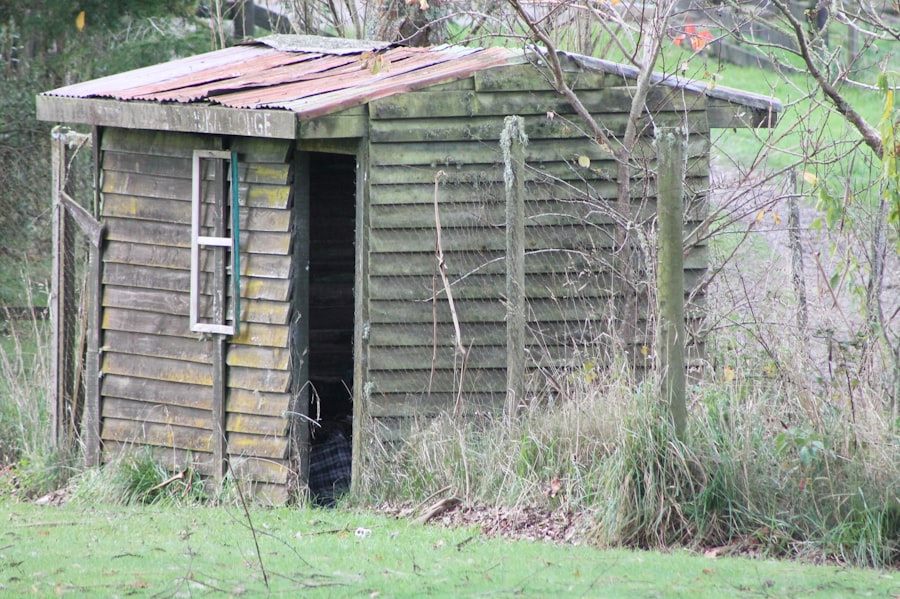Backyard chicken keeping is a practice that offers numerous benefits, including a supply of fresh eggs, natural pest management, and a closer connection to food production. However, many urban and suburban areas prohibit the keeping of chickens due to zoning laws and public health considerations. Despite these restrictions, some residents choose to raise chickens covertly in their backyards, potentially facing fines and other penalties if discovered.
While the appeal of fresh eggs and the experience of raising chickens may be strong, it is crucial to weigh the potential risks and legal consequences associated with keeping chickens illegally. Individuals considering this practice should thoroughly research local regulations and explore legal alternatives before making a decision.
Table of Contents
- 1 Risks and Consequences of Illegal Chicken Keeping
- 2 Tips for Keeping Backyard Chickens Secretly
- 3 Legal Alternatives to Illegal Chicken Keeping
- 4 Potential Benefits of Legalizing Backyard Chicken Keeping
- 5 Community Impact of Illegal Chicken Keeping
- 6 Conclusion and Considerations for Responsible Chicken Ownership
- 7 FAQs
- 7.1 What does it mean to keep backyard chickens illegally?
- 7.2 What are the potential consequences of keeping backyard chickens illegally?
- 7.3 How can I find out the local laws and regulations regarding keeping backyard chickens?
- 7.4 What are some common reasons for keeping backyard chickens illegally?
- 7.5 What are the potential risks of keeping backyard chickens illegally?
Key Takeaways
- Keeping backyard chickens illegally can result in fines and legal consequences
- Tips for keeping backyard chickens secretly include keeping a low profile and minimizing noise
- Legal alternatives to illegal chicken keeping include obtaining permits and following local regulations
- Potential benefits of legalizing backyard chicken keeping include access to fresh eggs and educational opportunities
- Illegal chicken keeping can impact the community through noise, odors, and potential health risks
Risks and Consequences of Illegal Chicken Keeping
Legal Consequences
Keeping backyard chickens illegally can result in severe legal consequences. Many municipalities have strict zoning regulations that prohibit the keeping of livestock, including chickens, in residential areas. Violating these regulations can lead to hefty fines and even the forced removal of the chickens.
Health Concerns
Illegal chicken keeping also poses health risks. Unregulated chicken coops can attract pests and increase the risk of disease transmission. Moreover, neighbors may become disgruntled if they discover illegal chicken keeping in the area, leading to strained relationships and potential conflicts.
Potential Benefits
On the other hand, some individuals may find that the benefits of keeping backyard chickens secretly outweigh the risks. The joy of raising chickens and the satisfaction of producing their own food can be a significant reward. Fresh eggs from backyard chickens can also be a valuable resource, providing a sustainable and cost-effective source of protein.
Considering the Implications
Ultimately, it’s crucial to carefully consider the legal and ethical implications of illegal chicken keeping before making a decision. Weighing the potential risks and benefits is essential to ensure that keeping backyard chickens is a responsible and sustainable choice.
Tips for Keeping Backyard Chickens Secretly

For those who are determined to keep backyard chickens despite the legal restrictions, there are several tips for doing so discreetly. First and foremost, it’s essential to maintain a low profile and keep the chickens out of sight from neighbors and passersby. This may involve strategically placing the chicken coop in a secluded area of the backyard or using camouflage to blend it into the surroundings.
Additionally, keeping the coop clean and odor-free can help prevent detection and minimize the risk of complaints from neighbors. It’s also important to limit the number of chickens kept to a small, manageable flock to reduce the likelihood of drawing attention. Furthermore, building a secure and predator-proof coop is essential for keeping backyard chickens secretly.
This not only protects the chickens from harm but also prevents potential issues with wildlife and pests that could attract unwanted attention. Finally, maintaining good relationships with neighbors and being considerate of their concerns can go a long way in avoiding conflicts related to illegal chicken keeping. By following these tips, individuals may be able to keep backyard chickens secretly while minimizing the risk of detection.
Legal Alternatives to Illegal Chicken Keeping
Instead of risking fines and legal consequences by keeping backyard chickens illegally, there are legal alternatives that individuals can explore. Many municipalities have provisions for obtaining permits or variances to keep chickens in residential areas. By researching local zoning regulations and obtaining the necessary permits, individuals can legally keep backyard chickens without fear of repercussions.
Additionally, some communities have initiated efforts to change zoning laws to allow for urban chicken keeping, providing a legal avenue for those interested in raising chickens. Another alternative is to seek out community gardens or urban farms that allow for communal chicken keeping. These shared spaces provide an opportunity for individuals to participate in chicken keeping without violating zoning regulations.
By exploring these legal alternatives, individuals can enjoy the benefits of raising chickens while remaining in compliance with local laws.
Potential Benefits of Legalizing Backyard Chicken Keeping
Legalizing backyard chicken keeping can have numerous benefits for individuals and communities. First and foremost, it promotes self-sufficiency and sustainability by allowing residents to produce their own food in a responsible manner. Fresh eggs from backyard chickens can contribute to a healthy and affordable diet, reducing reliance on store-bought products.
Additionally, legalizing backyard chicken keeping can foster a sense of community by providing opportunities for neighbors to connect over shared interests in sustainable living and animal husbandry. Furthermore, legalizing backyard chicken keeping can have positive environmental impacts by reducing food miles and promoting responsible waste management through composting. By allowing residents to keep chickens legally, municipalities can support efforts to reduce food waste and promote sustainable practices.
Overall, legalizing backyard chicken keeping can contribute to a more resilient and environmentally conscious community.
Community Impact of Illegal Chicken Keeping

Strained Relationships and Frustration
Discovering that a neighbor is keeping chickens illegally can lead to feelings of resentment and frustration among other residents who may feel that their quality of life is being compromised.
Health and Safety Risks
Illegal chicken keeping can pose health and safety risks if not properly managed, potentially impacting the well-being of the entire community.
Strain on Local Resources
Furthermore, illegal chicken keeping can strain local resources as municipal authorities may need to allocate time and resources to address complaints and enforce zoning regulations. This diverts attention away from other important community issues and can create unnecessary burdens on local government agencies. By considering the community impact of illegal chicken keeping, individuals can make informed decisions about whether or not to pursue this practice.
Conclusion and Considerations for Responsible Chicken Ownership
In conclusion, while the appeal of keeping backyard chickens illegally may be strong, it’s important to carefully consider the risks and consequences before doing so. By exploring legal alternatives and advocating for changes in zoning regulations, individuals can pursue their interest in raising chickens while remaining in compliance with local laws. Legalizing backyard chicken keeping can have numerous benefits for individuals and communities, promoting self-sufficiency, sustainability, and community connections.
Ultimately, responsible chicken ownership involves being mindful of the impact on neighbors and the community as a whole. By following best practices for discreet chicken keeping or pursuing legal avenues for raising chickens, individuals can enjoy the rewards of this sustainable practice while minimizing potential conflicts and risks. With careful consideration and responsible management, backyard chicken keeping can be a fulfilling and positive experience for both individuals and their communities.
If you’re considering keeping backyard chickens, it’s important to be aware of the legalities surrounding it. In some areas, keeping chickens may be illegal or subject to specific regulations. For more information on the legal aspects of keeping backyard chickens, check out this article on Poultry Wizard’s website.
FAQs
What does it mean to keep backyard chickens illegally?
Keeping backyard chickens illegally means that you are not following the local laws and regulations regarding the keeping of chickens on your property. This could include not obtaining the necessary permits, exceeding the allowable number of chickens, or not meeting the required coop and run specifications.
What are the potential consequences of keeping backyard chickens illegally?
The potential consequences of keeping backyard chickens illegally can vary depending on local laws and regulations. This could include fines, citations, or even having to remove the chickens from your property. In some cases, legal action may be taken against the owner.
How can I find out the local laws and regulations regarding keeping backyard chickens?
You can find out the local laws and regulations regarding keeping backyard chickens by contacting your local city or county government office. They can provide you with information on permits, zoning laws, and any other requirements for keeping chickens on your property.
What are some common reasons for keeping backyard chickens illegally?
Some common reasons for keeping backyard chickens illegally include a lack of awareness of the local laws and regulations, a desire to avoid the time and expense of obtaining permits, or simply not wanting to comply with the rules.
What are the potential risks of keeping backyard chickens illegally?
The potential risks of keeping backyard chickens illegally include legal consequences, health and safety risks for the chickens, and potential nuisance issues for neighbors. Additionally, illegal chicken keeping can contribute to the spread of diseases and pests.
Meet Walter, the feathered-friend fanatic of Florida! Nestled in the sunshine state, Walter struts through life with his feathered companions, clucking his way to happiness. With a coop that’s fancier than a five-star hotel, he’s the Don Juan of the chicken world. When he’s not teaching his hens to do the cha-cha, you’ll find him in a heated debate with his prized rooster, Sir Clucks-a-Lot. Walter’s poultry passion is no yolk; he’s the sunny-side-up guy you never knew you needed in your flock of friends!







